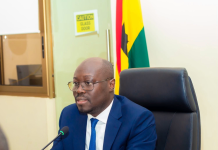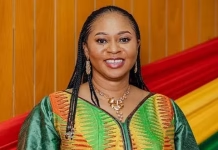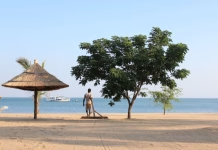
Head of JoyNews’ Political Desk, Evans Mensah, says journalists in the country are now looking over their shoulders when working on stories that could affect powerful people.
According to him, many newsroom actors have had to self-censor in the line of their duty to avoid the wrath of politicians who wield power and their supporters who are always ready to attack.
“We are self-censoring more now than we used to do. You are writing a headline, and you are thinking a bit more about the implication of this headline than you would do before. For me, that is one of those silent areas we haven’t talked about.
“There must be a reason for this, and I have disagreed with the President quite forcefully when his public utterances, unfortunately, reinforce this view and leads journalists to self-censor a bit more,” he told Samson Lardy Anyenini on Newsfile on Saturday.
He added, “They [Reporter Without Borders] talk about the fact that to protect their jobs, journalists in Ghana increasingly resort to self-censorship, and it is that self-censorship issue that, for me, speaks to current reality.
“Many people won’t know, but in many newsrooms, including our own, colleagues do stories that are very critical…and they tell you they would come at you and in many newsrooms now, you see people say this daily.”
The US Department of State released its 2021 Annual Country Reports on Human Rights Practices, citing Ghana for several human rights cases of abuse, including clamping down on free speech.
In a related development, the RSF described the press freedom situation in the country as problematic, adding that the safety of journalists has deteriorated in recent years because all law enforcement officers attacking journalists are not pursued.
According to the report, this has led journalists in the country to “increasingly resort to self-censorship” in order to protect their jobs and security.
“If you look at the broader view [of the report], where you look purely at the rankings, that definitely doesn’t tell a good story. If you drill down to some of the specifics that the World Press Freedom Index has touched on, one of the things that speak to my reality is the political context.
“This is something that the Reporters Without Borders themselves had articulated in explaining some of the reasons why they ranked us at 60 in the world,” Evans Mensah added.
Meanwhile, the Executive Director of the Media Foundation for West Africa, Sulemana Braimah, has said the report on press freedom affirms the various concerns raised by keen advocates.
He noted that somehow, these concerns have been ignored by the government.
“State authorities must acknowledge that things are not the way they ought to be. We need to all sit-down, and government must accept that things are not normal, and we work towards improving our conditions,” he said on Wednesday, May 4, 2022, on the Super Morning Show.
Thus, he entreated state authorities to sit up and work hand-in-hand with other stakeholders of press freedom to improve the situation in the country.









![Kumasi: Fire destroys several shops at Adum market [Photos]](https://betterghanadigest.com/wp-content/uploads/2025/03/adum-market-218x150.avif)










